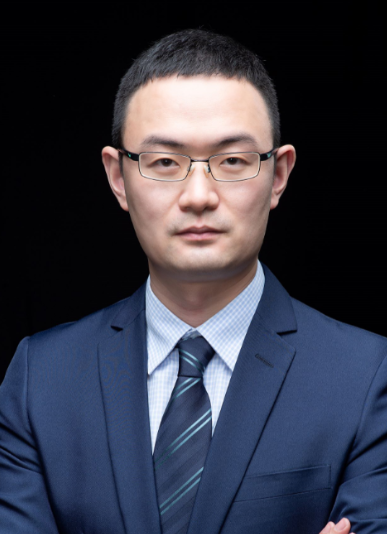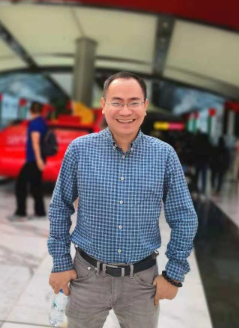
| Prof. Dusit (Tao) Niyato, Nanyang Technological University (NTU), SingaporeIEEE Fellow, IET FellowDusit Niyato is currently a President's Chair Professor in the College of Computing & Data Science (CCDS), Nanyang Technological University, Singapore. He received B.E. from King Mongkuk’s Institute of Technology Ladkrabang (KMITL), Thailand in 1999 and Ph.D. in Electrical and Computer Engineering from the University of Manitoba, Canada in 2008. Dusit's research interests are in the areas of distributed collaborative machine learning, Internet of Things (IoT), edge intelligent generative AI and AI-generated content (AIGC), mobile and distributed computing, and wireless networks. Dusit won the IEEE Vehicular Technology Society Stuart Meyer Memorial Award, and the IEEE Communications Society (ComSoc) Best Survey Paper Award, IEEE Asia-Pacific Board (APB) Outstanding Paper Award. Currently, Dusit is serving as Editor-in-Chief of IEEE Communications Surveys and Tutorials (impact factor of 34.4 for 2023), an area editor of IEEE Transactions on Vehicular Technology, editor of IEEE Transactions on Wireless Communications, associate editor of IEEE Internet of Things Journal, IEEE Transactions on Mobile Computing, IEEE Wireless Communications, IEEE Network, IEEE Transactions on Information Forensics and Security (TIFS), IEEE Transactions on Cognitive Communications and Networking (TCCN), IEEE Data Descriptions, IEEE Transactions on Services Computing, IEEE Communications Magazine, and ACM Computing Surveys. He was also a guest editor of IEEE Journal on Selected Areas on Communications. He is the Members-at-Large to the Board of Governors of IEEE Communications Society for 2024-2026. He was named the 2017-2023 highly cited researcher in computer science. He is a Fellow of IEEE and a Fellow of IET. |
Prof. Jie Xu, The Chinese University of Hong Kong, Shenzhen, ChinaIEEE FellowJie Xu is currently an Associate Professor (Tenured) with the School of Science and Engineering, the Shenzhen Future Network of Intelligence Institute (FNii-Shenzhen), and the Guangdong Provincial Key Laboratory of Future Networks of Intelligence, The Chinese University of Hong Kong, Shenzhen, China. His research interests include wireless communications, wireless information and power transfer, UAV communications, edge computing and intelligence, and integrated sensing and communication (ISAC). He was a recipient of the 2017 IEEE Signal Processing Society Young Author Best Paper Award, the 2019 IEEE Communications Society Asia-Pacific Outstanding Young Researcher Award, and the 2019 Wireless Communications Technical Committee Outstanding Young Researcher Award. He is the Vice Chair of the IEEE Wireless Communications Technical Committee (WTC), and the Vice Co-chair of the IEEE Emerging Technology Initiative (ETI) on ISAC. He served or is serving as an Associate Editor-in-Chief of the IEEE Transactions on Mobile Computing, an Editor of the IEEE Transactions on Wireless Communications, IEEE Transactions on Communications, IEEE Wireless Communications Letters, and Journal of Communications and Information Networks, and a Guest Editor of the IEEE Wireless Communications, IEEE Journal on Selected Areas in Communications, IEEE Internet of Things Magazine, Science China Information Sciences, and China Communications. He is a Distinguished Lecturer of IEEE Communications Society. |
|
| Prof. Xu Chen, Sun Yat-sen University, ChinaNational Young TalentDr. Xu Chen is currently a Full Professor and Assistant Dean at School of Computer Science and Engineering, Sun Yat-sen University, Guangzhou, China. He obtained the Ph.D. degree in Information Engineering from The Chinese University of Hong Kong, Hong Kong, China, in 2012. Before that, he received the B.Eng. degree in Electronic Engineering from South China University of Technology, Guangzhou, China, in 2008. From August 2012 to February 2014, Dr. Chen was a Postdoctoral Research Fellow with Arizona State University, USA. From April 2014 to Aug. 2016, he was a Humboldt Scholar Fellow with Institute of Computer Science of University of Goettingen, Germany. Dr. Chen has published over 300 scientific papers in leading international conferences and journals, many of which appear in top-tier conferences such as MOBICOM, MOBIHOC, and INFOCOM and top-tier journals such as IEEE TON, JSAC, and TMC. His research results have been highly visible, with multiple publications being selected as 1‰ ESI Hot Papers by Web of Science. For his high-quality research works, Dr. Chen received the prestigious Humboldt research fellowship awarded by Alexander von Humboldt Foundation, 2014 Hong Kong Young Scientist Runner-up Award, 2022 IEEE Communications Society Asia Pacific Outstanding Paper Award, 2022 IEEE Internet of Things Journal Best Paper Runner-Up Award, 2022 IEEE Computer Society Best Paper Awards Runner-up , 2017 IEEE Communication Society Asia-Pacific Outstanding Young Researcher Award, 2017 IEEE ComSoc Young Professional Best Paper Award, Best Paper Runner-up Award of 2014 IEEE International Conference on Computer Communications (INFOCOM), and Best Paper Award of 2017 IEEE International Conference on Communications (ICC). Dr. Chen is an IEEE ComSoc Distinguished Lecturer, and serves as an area editor for IEEE Open Journal of the Communications Society, and associate editors for IEEE Transactions on Mobile Computing, IEEE Transactions on Wireless Communications, IEEE Transactions on Vehicular Technology, IEEE Internet of Things Journal, and IEEE Journal on Selected Areas in Communications (JSAC) Series on Network Softwarization and Enablers. He also serves as TPC members for a series of top tier conferences including MOBIHOC and INFOCOM. |
Assist. Prof. Hongyang Du, The University of Hong Kong, ChinaHongyang Du is an assistant professor at the Department of Electrical and Electronic Engineering, the University of Hong Kong (HKU). Before joining HKU, I received Ph.D. degree at the College of Computing and Data Science, Nanyang Technological University, Singapore, supervised by Prof. Dusit Niyato. Prior to this, I received B.Eng. degree at Beijing Jiaotong University, China, supervised by Prof. Jiayi Zhang. I am now the Principal Investigator (PI) of the Network Intelligence and Computing Ecosystem (NICE) Lab @ HKU. |
|



